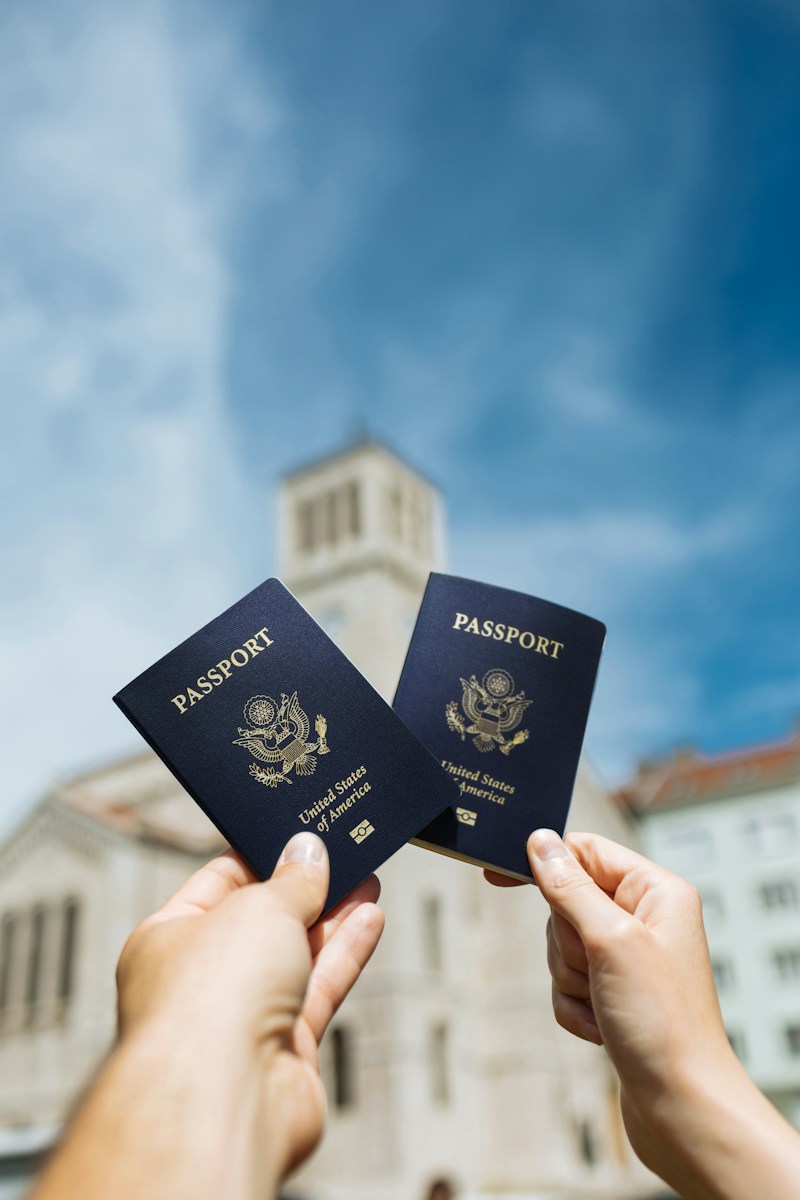H1B Visa Sponsorship Requirements: An Overview
H1B Visa Sponsorship Requirements: An Overview
The H1B visa program is designed to attract highly skilled foreign workers to the United States. However, to be eligible for H1B visa sponsorship, individuals must meet specific requirements. In this article, we will provide an overview of the key requirements needed to secure H1B visa sponsorship.
First and foremost, the applicant must possess a bachelor’s degree or higher from a recognized educational institution. Alternatively, an individual may be qualified if they can demonstrate equivalent work experience. This means that they must have at least 12 years of specialized work experience in the field they are being sponsored for.
Furthermore, the H1B visa is typically granted to individuals who will be employed in a specialty occupation. A specialty occupation refers to a position that requires theoretical and practical application of highly specialized knowledge. This can include fields such as engineering, computer science, finance, medicine, and many others.
Additionally, the employer must meet certain criteria to act as a sponsor for the H1B visa application. The employer must be a legitimate U.S. company with an established presence in the country. They must also provide evidence that they have the financial capability to pay the H1B employee the prevailing wage for their occupation.
One crucial requirement for H1B visa sponsorship is the Labor Condition Application (LCA). The LCA is a document submitted by the employer to the Department of Labor, stating the terms and conditions of the employment, including the wages, working conditions, and the location of employment. The LCA is a crucial aspect of the H1B visa application process and must be filed before the actual visa petition.
Another integral component of the H1B visa sponsorship is the need for a job offer from the sponsoring employer. The employer must extend a formal job offer to the foreign worker, outlining the terms and conditions of employment. This includes the wage offered, working hours, and any other benefits or responsibilities associated with the position.
It is also worth noting that there is an annual cap on the number of H1B visas that can be granted each year. Currently, the cap stands at 85,000 visas, with 65,000 reserved for individuals with a bachelor’s degree or equivalent, and an additional 20,000 reserved for individuals with a master’s degree or higher earned from a U.S. educational institution.
Obtaining H1B visa sponsorship requires meeting several requirements. These include possessing a bachelor’s degree or equivalent work experience, securing a job offer from a U.S. employer, and ensuring that the employer meets the criteria to act as a sponsor. The successful acquisition of an H1B visa allows foreign workers to work and reside legally in the United States, contributing their skills and expertise to the growth and development of the country’s economy.
H1B Visa Program: Eligibility Criteria
The H1B visa program is a non-immigrant visa program that allows U.S. employers to hire foreign workers in specialty occupations. To be eligible for H1B visa sponsorship, both the employer and the employee must meet certain criteria set by the U.S. Citizenship and Immigration Services (USCIS). Understanding these eligibility criteria is crucial for individuals seeking H1B visa sponsorship.
1. Specialty Occupation: The first requirement for H1B visa sponsorship is that the position being offered by the U.S. employer must qualify as a specialty occupation. A specialty occupation is one that requires the theoretical and practical application of a body of highly specialized knowledge, typically obtained through a bachelor’s degree or higher.
2. Educational Qualifications: The employee being sponsored for an H1B visa must possess the necessary educational qualifications to perform the specialty occupation. Generally, this means having a bachelor’s degree or higher in a field related to the position. In some cases, a combination of education and work experience may be accepted by the USCIS as equivalent to a degree.
3. Job Offer: An employer seeking to sponsor an employee for an H1B visa must have a valid job offer for the employee. The job offer must meet the requirements of a specialty occupation and specify the terms and conditions of employment, including the salary offered.
4. Labor Condition Application (LCA): Before filing the H1B visa petition, the employer must obtain a certified Labor Condition Application (LCA) from the Department of Labor (DOL). The LCA ensures that the employer will pay the employee the prevailing wage for the position and comply with certain labor laws.
5. Employer-Employee Relationship: The employer must establish that there is a valid employer-employee relationship with the sponsored employee. This means that the employer has the right to control the work performed by the employee, and the employee is under the direct supervision and control of the employer.
6. Quota and Lottery: The H1B visa program has an annual cap on the number of visas available. Once the quota is reached, the USCIS conducts a lottery to randomly select the petitions that will be considered for processing. It’s important to note that not all H1B visa petitions are selected in the lottery, making the process highly competitive.
7. Non-immigrant Intent: the employee must demonstrate non-immigrant intent, meaning they have the intention to enter the U.S. temporarily for employment purposes and have the intent to return to their home country upon the expiration of the visa.
Meeting these eligibility criteria is essential for individuals and employers seeking H1B visa sponsorship. It is advisable to consult an immigration attorney or specialist to navigate the complex requirements of the H1B visa program and increase the chances of a successful visa application.
H1B Visa Sponsorship Requirements: An Overview
As an immigrant looking to work in the United States, understanding the H1B visa sponsorship requirements is essential. The H1B visa is a non-immigrant visa that allows foreign workers to be employed in specialty occupations. To secure H1B visa sponsorship, both the applicant and the employer must meet certain criteria outlined by the United States Citizenship and Immigration Services (USCIS).
To begin with, the employer must be a legitimate US entity and must be willing to sponsor the applicant for the H1B visa. This includes offering a job that qualifies as a specialty occupation, meaning it requires theoretical or technical expertise in a specific field such as engineering, computer science, or medicine.
The applicant, on the other hand, must possess the necessary qualifications and education to fulfill the job requirements. Typically, this involves having at least a bachelor’s degree or equivalent. In some cases, experience in the field can be considered in place of a formal degree.
Additionally, it is crucial for the employer to demonstrate that they will pay the H1B visa holder a prevailing wage for the specific occupation in the geographic area where the work will take place. This ensures that the employment of foreign workers does not adversely affect the wages and working conditions of similarly employed US workers.
Along with these general requirements, there are a few specific steps and documents that both the employer and the applicant must provide to complete the H1B visa sponsorship process:
1. Labor Condition Application (LCA): The employer must file an LCA with the Department of Labor, which includes information such as the job title, salary, and working conditions. This serves to protect the rights and wages of H1B visa holders.
2. I-129 Petition: The employer must file an I-129 petition with the USCIS on behalf of the applicant. This form includes details about the employer, the position being offered, and the qualifications of the applicant.
3. Supporting Documents: Both the employer and the applicant must provide supporting documents, such as educational certificates, employment history, and proof of qualifications, to establish the eligibility for the H1B visa.
It is important to note that the H1B visa has an annual cap, meaning only a limited number of visas are available each fiscal year. As a result, the demand for H1B visas often exceeds the supply, and a lottery system is used to select the beneficiaries.
Securing H1B visa sponsorship requires meeting specific requirements outlined by the USCIS. Both the employer and the applicant must fulfill their respective obligations and provide the necessary documentation to successfully obtain an H1B visa. By understanding these requirements and following the necessary steps, immigrants can increase their chances of obtaining this valuable work visa.
H1B Visa Sponsorship Requirements: An Overview
When applying for an H1B visa, it is essential to understand the requirements and responsibilities involved in the sponsorship process. The H1B visa is a non-immigrant visa that allows U.S. employers to hire foreign workers in specialized occupations. To secure H1B visa sponsorship, both the employer and the employee must meet specific criteria set by the United States Citizenship and Immigration Services (USCIS).
Firstly, the employer must demonstrate that the job position they are offering is a specialty occupation. This means that the job requires theoretical and practical application of a highly specialized knowledge, which typically requires a bachelor’s degree or higher in a specific field. The employer must provide documentation and evidence to support the claim that the position meets the criteria of a specialty occupation.
Furthermore, the employer must prove that they will pay the H1B worker the prevailing wage for the position in the geographic area where the work will be performed. This ensures that the sponsorship does not undermine the wages and working conditions of U.S. workers. The wage determination process involves obtaining a prevailing wage determination from the Department of Labor or conducting an independent wage survey.
On the other hand, the prospective employee must possess the required qualifications for the specialty occupation. This typically involves holding a bachelor’s degree or higher in a relevant field of study. In some cases, relevant work experience can be considered as an alternative to the formal education requirement. The employee must provide educational records, such as degree certificates or transcripts, to establish their eligibility for the position.
Another requirement for H1B visa sponsorship is maintaining an employer-employee relationship. The employer must have the right to control and supervise the work of the H1B visa holder. In other words, the employee must work under the direct supervision and control of the employer, ensuring that the employer retains the right to hire, fire, and determine the terms and conditions of employment.
Additionally, the employer must comply with all the obligations imposed by the Department of Labor and USCIS, including filing labor condition applications (LCAs), maintaining records, and providing documentation as required. The employer must also attest that there is no strike, lockout, or work stoppage in the occupation at the place of employment.
Obtaining H1B visa sponsorship requires both the employer and the employee to fulfill certain requirements. The employer must establish that the position is a specialty occupation and demonstrate the ability to pay the prevailing wage. The employee must possess the necessary qualifications for the job and maintain an employer-employee relationship. Adhering to the sponsorship requirements ensures a smooth and successful H1B visa application process.
READ ALSO: H1b Visa Sponsorship Jobs
Steps to Secure H1B Visa Sponsorship: A Comprehensive Guide
Overview of the H1B Visa Program
The H1B visa program allows foreign workers to temporarily work in the United States in occupations that require specialized knowledge and a higher level of education. To secure H1B visa sponsorship, individuals must meet specific requirements and follow a series of steps. This comprehensive guide will outline the key steps applicants need to take to secure H1B visa sponsorship.
Research and Identify Potential Sponsors
The first step in securing H1B visa sponsorship is to research and identify potential sponsors. H1B visa sponsorship can only be provided by U.S. employers who are willing to hire foreign workers and meet the required criteria. It is essential to search for employers in your field of expertise who have a history of hiring international workers.
Check Eligibility Criteria
Once you have identified potential sponsors, it is crucial to check the eligibility criteria for the H1B visa program. To be eligible, you must have a job offer from a U.S. employer for a specialty occupation that requires a minimum of a bachelor’s degree or equivalent. In addition, you must possess the necessary qualifications, skills, and experience to perform the job successfully.
Submit Labor Condition Application (LCA)
After confirming your eligibility, your potential employer must submit a Labor Condition Application (LCA) to the Department of Labor (DOL). The LCA ensures that your employment will not adversely affect the wages and working conditions of U.S. workers. It also certifies that the employer will pay you the prevailing wage for your occupation.
File Form I-129 Petition
Once the LCA is certified, your employer can proceed with filing Form I-129, Petition for a Nonimmigrant Worker, with U.S. Citizenship and Immigration Services (USCIS). This form establishes the employer’s intent to hire you as a temporary worker and sponsors your H1B visa application.
Pay Applicable Fees
As part of the H1B visa sponsorship process, certain fees must be paid. These include the USCIS filing fee, the Fraud Prevention and Detection fee, and the Public Law 114-113 fee. Your employer is responsible for covering these fees unless you have negotiated otherwise.
Submit Supporting Documents
Along with the Form I-129 petition, you will need to submit various supporting documents, including but not limited to your educational certificates, resume, and evidence of any relevant work experience. These documents help establish your qualifications and eligibility for the H1B visa program.
Attend Consular Interview
If your H1B visa petition is approved by USCIS, you will be required to attend a consular interview at the U.S. embassy or consulate in your home country. During the interview, a consular officer will review your documents, ask questions about your intended employment, and determine if you qualify for the H1B visa.
Finalize Travel Arrangements
Upon receiving your H1B visa, you can finalize your travel arrangements to the United States. It is essential to plan your arrival and prepare for the transition, including finding housing, arranging for transportation, and familiarizing yourself with the local area.
Securing H1B visa sponsorship requires careful planning, research, and adherence to the necessary steps. By following this comprehensive guide, you can increase your chances of successfully obtaining H1B visa sponsorship and starting your journey as a temporary worker in the United States. Remember to consult with an immigration attorney or specialist for personalized guidance throughout the process.
Conclusion
Obtaining H1B visa sponsorship requires an understanding of the program’s eligibility criteria, the key documents needed, and the role of the H1B sponsor in the visa process. By following the comprehensive guide discussed, individuals can navigate through the complex requirements and increase their chances of securing an H1B visa.
The H1B visa sponsorship requirements are designed to ensure that employers only hire qualified international workers when there is a shortage of skilled American workers. The eligibility criteria include possessing specialized knowledge and a minimum educational qualification of a bachelor’s degree or its equivalent. Additionally, the job offered must be in a specialty occupation, meaning it requires theoretical and practical application of highly specialized knowledge.
To apply for H1B visa sponsorship, applicants must provide several key documents. These include a Labor Condition Application (LCA) certified by the Department of Labor, a job offer letter or employment agreement from the sponsoring employer, and evidence of the applicant’s educational qualifications and work experience. It is important to ensure that all documents are accurate, complete, and meet the specific requirements of the application.
The role of the H1B sponsor is crucial in the visa process. The sponsor is responsible for filing the H1B petition with the U.S. Citizenship and Immigration Services (USCIS) on behalf of the applicant. It is the sponsor’s obligation to demonstrate that they have a genuine need for the services of the foreign worker and that they will provide the necessary working conditions, wages, and benefits. The sponsor must also comply with the prevailing wage requirements established by the Department of Labor.
Securing H1B visa sponsorship requires a comprehensive approach. The first step is for the employer to obtain a labor certification from the Department of Labor, certifying that there are no qualified American workers available for the job position. Once the labor certification is obtained, the employer can proceed to file the H1B petition with the USCIS. This includes completing the necessary forms, submitting supporting documents, and paying the required fees.
After receiving the approval of the H1B petition, the applicant can then apply for an H1B visa at their nearest U.S. embassy or consulate. This involves attending an interview and providing additional documents, such as a valid passport, the approved petition, and evidence of financial support. If the visa is granted, the applicant can travel to the United States and begin working for their sponsoring employer.
Understanding the H1B visa sponsorship requirements is essential for individuals seeking employment opportunities in the United States. By familiarizing themselves with the eligibility criteria, gathering the necessary documents, and working closely with their sponsors, applicants can increase their chances of successfully obtaining an H1B visa. While the process may be intricate and time-consuming, the potential rewards in terms of career growth and opportunities are significant for those willing to navigate through the requirements diligently.
Originally posted 2024-02-03 16:36:21.



